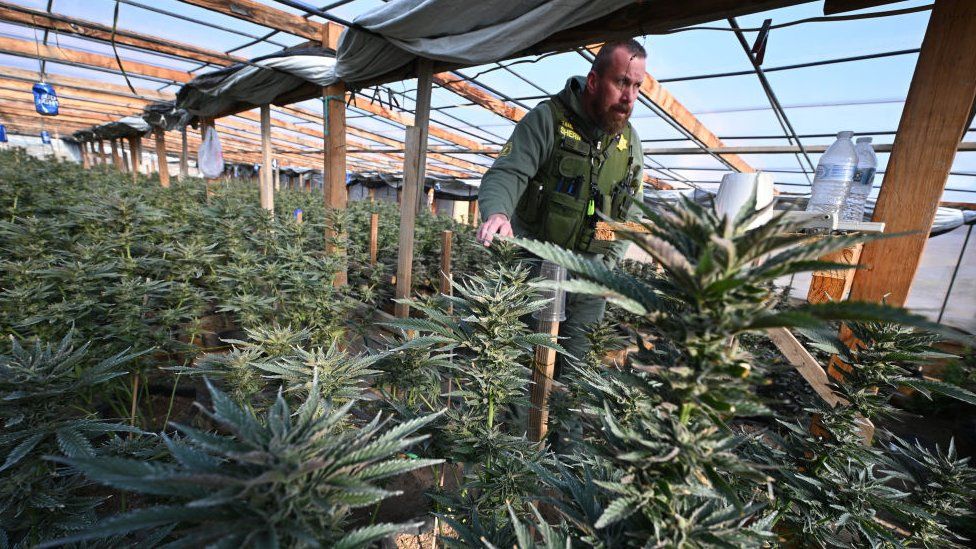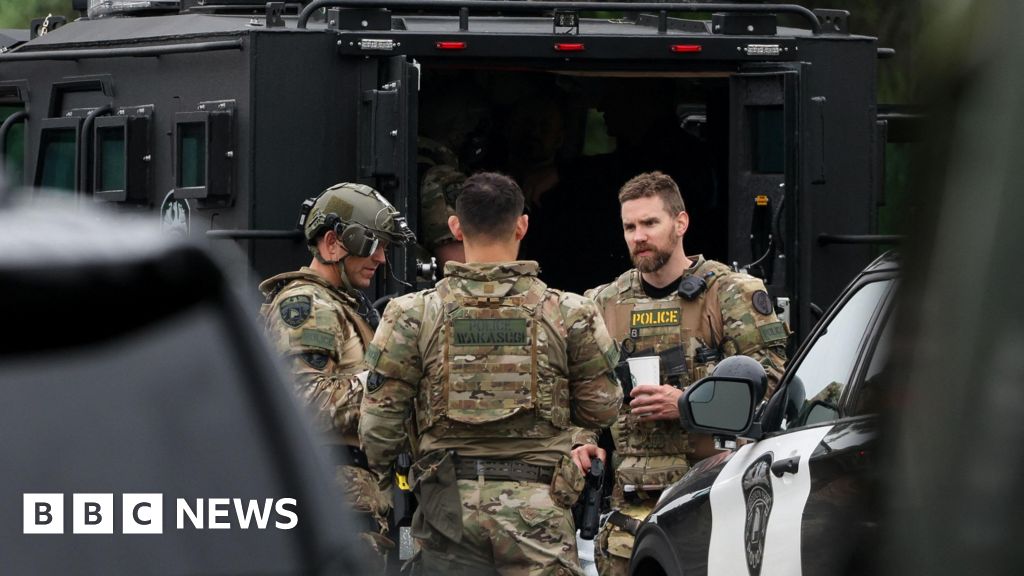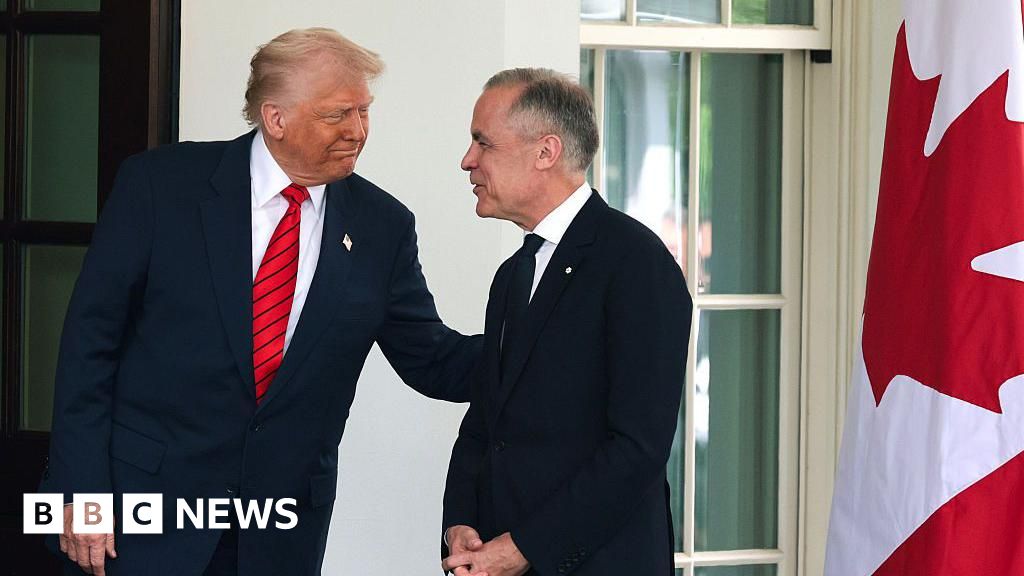ARTICLE AD BOX
 Image source, Getty Images
Image source, Getty Images
Experts say reclassification would undercut the still-thriving black market for marijuana in the US.
By Bernd Debusmann Jr
BBC News, Washington
The US Drug Enforcement Administration plans to reclassify marijuana as a less dangerous drug, a historic shift in US drug policy.
At a federal level, marijuana is classified as a "Schedule I" drug, a category it shares with heroin, ecstasy and LSD.
Instead, it would be included among "Schedule III" drugs, which are considered less likely to be abused.
The move would be the most significant US drug policy change in over 50 years.
The Department of Justice will send its recommendation to reclassify marijuana to the White House Office on Management and Budget (OMB) on Tuesday, according to two sources familiar with the plan.
An approval by the OMB would be followed by a public comment period and review by an administrative judge before the change is formalised and published.
While marijuana remains illegal at the federal level, 38 individual states have legalised it for medical purposes, and 24 have legalised it for recreational use.
What are Schedule I and Schedule III drugs?
Since 1971, marijuana has been a Schedule I drug, meaning that - in the federal government's view - it has "no currently accepted medical use and a high potential for abuse."
Schedule III substances, on the other hand, are defined by the DEA as drugs "with a moderate to low potential for physical and psychological abuse".
Other drugs in this category include Tylenol with codeine, steroids, testosterone and ketamine.
Drugs in the Schedule III category are still controlled, and their unauthorised trafficking could still lead to federal criminal prosecution, although the penalties are less severe.
What would reclassification mean?
In practice, the move could also undercut the vast black market for the drug that continues to exist even in parts of the country where marijuana's legal sale are regulated and subject to tax.
"When you legalise a compound, far more people would go to the legal market, just because it's simple and people don't have access to the black market. The illicit market would certainly dwindle," Dr Carl Hart, a psychologist and neuroscientist from Columbia University who specialises in drug use and addiction told the BBC.
This shift, in turn, could ultimately help further drive down the already declining number of marijuana arrests made in the US each year.
"That's extremely important," Dr Hart said. "Cannabis arrests used to be well over a million every year, and as a result of legalisation in various states, that number has dropped dramatically. With this move, it should drop even further."
"That means fewer people will have to interact with law enforcement," he added. "A lot of people get their introduction to the criminal justice system through marijuana."
Image source, Getty Images
Image caption,Public opinions on marijuana have shifted, with a majority of US adults now in favour of legalisation
In recent years, however, the overwhelming majority of marijuana arrests in the US are conducted at the state level, rather than the federal level. In some of those states - such as Florida or Georgia - marijuana has yet to be legalised at the local level.
Kevin McMunigal, a former federal prosecutor who now teaches law at Case Western Reserve University in Ohio, told the BBC that a federal reclassification would likely "have a ripple effect" down to the state level.
"It would have a symbolic impact," he added. "State legislators might start thinking about it. In the past it was deemed very tough for a state to deregulate when the federal government still makes it a serious crime."
Reclassification could also make government-authorised clinical studies of the drug's medical benefits easier.
Industry groups have also suggested that it could help ease the tax burden on businesses in the cannabis industry, which can rise to 70% in some cases.
Why now?
The move to reschedule marijuana comes amid a massive shift in public opinion and acceptance over its use.
A Gallup poll conducted last year, for example, found that 70% of US adults support legalisation, compared to just 30% in 2000.
"It's all about public perception," Dr Hart said. "It's public perception, not reality, that drives what we arrest people for."
The reclassification proposal also comes less than two years after US President Joe Biden called for a review of federal marijuana laws and pardoned thousands of US marijuana users convicted of "simple possession" under federal law.
"Criminal records for marijuana use and possession have imposed needless barriers to employment, housing, and educational opportunities," Mr Biden said last year. "Too many lives have been upended because of our failed approach to marijuana. It's time that we right these wrongs."
Last week, 21 Democratic lawmakers also sent a letter urging the DEA and Attorney General Merrick Garland to drop marijuana from its list of controlled-substances entirely and instead treat it like alcohol.
"It is time for the DEA to act," the letter said. "Right now, the Administration has the opportunity to resolve more than 50 years of failed, racially discriminatory marijuana policy."

 1 year ago
60
1 year ago
60








 English (US) ·
English (US) ·